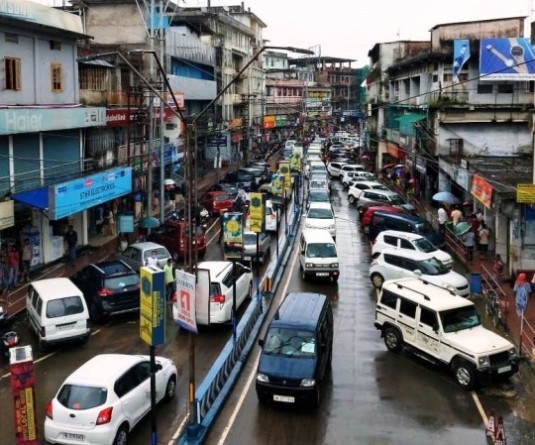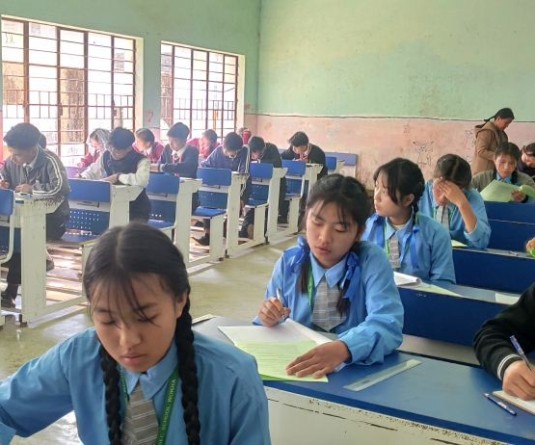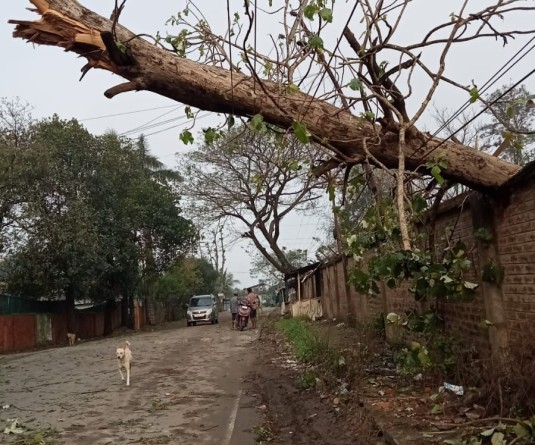
FNR holds public interaction in Kohima
Morung Express News
Kohima | July 20
As part of ‘Walking the Naga Day’, the Forum for Naga Reconciliation (FNR) initiated open public interactions today at Nagaland University, Meriema Campus, Kohima and Hotel Japfu, Kohima. The dialogue was carried forward with a cross section of Nagas-scholars, students, professionals and concerned individuals discussing and sharing thoughts, experiences and questions on the formation of FNR, social and political issues, inclusivity and continuing a journey of reconciliation.
FNR journey
Inter-factional violence, fear and distrust was the picture of the Naga Society during the time FNR came into being- 10 years ago. Endeavoring these challenging paths to enable the groups to reconcile, the members travelled far reaching south and west of Naga lands- meeting Naga national groups in their headquarters, jungles, bringing the support of Naga frontal groups, or sometimes shunned. These recollections were put forth by Convenor, FNR Rev. Dr. Wati Aier while introducing the discussions.
This path of reconciliation and trust building process has a cause and effect-inter-factional violence has decreased, Rev Aier pointed out.
While noting that “History is ontological, is living and are a being,” while also relating this upon the history of the Nagas, the Convenor also called the need for an instrumental liberation of ourselves ‘psychologically’ from a frequently drawn dogmatism of the past memories. Take our story and tell 10 more people, he urged the participants.
Peace Activist, Niketu Iralu spoke on the view that the formation of the FNR was like a “divine intervention” for those that sacrificed “without wanting anything for themselves but doing everything possible,” later calling for “joined responsibility” of Nagas to also “stop making what has gone wrong worse.”
Addressing the issue of fragmentation
A research scholar of the university raised a question on how the recurring issue of fragmentation and tribalism rooting our society can be addressed. While Dr Phyobemo Ngully lamented that the fragmentation was a sorry state unlike the time when we started in the “oneness” of a Naga people. “The mind of the nation which has gotten distracted to the market forces has rendered us to ambiguity and confusion,” he added.
A participant also expressed that the issue now is not the people holding the gun but our fragmentation among our tribes, associations and our own ideological divides.
Dr Akum Longchari, Publisher, The Morung Express also raised a question on whether tribes existed before civilization pointing that one has to go to the source of it because tribalism has been a part and participant of the market force. As in comparison and in the last five years, he said the mechanism of responding to the policy of “divide and rule” as against today’s policy of “define and rule”has become outdated.
Rev Dr Ellen Konyak, Principal Oriental Theological Seminary (OTS) then noted that a breakdown in communication needs to take place from where forgiveness has to be inherent and adapted as a core of the journey.
Inclusion of the people
A student of the university and a Naga from Manipur, expressed how he has always felt the overshadowing attitude of Nagas from Nagaland towards the Nagas scattered across other regions or constantly given the treatment of an outsider. Towards this, another participant also cited that our generation narrowed and legitimized by law is an indifferent and complacent majority that does not want to engage in our realities.
As political agreements or negotiations are concerned, mental inclusion needs to take place where one also need to get out of our own arbitrary boundaries, open a space to also learn and grown from one another.
Conflict resolution
Rev Dr Ellen Konyak was of the opinion that “Conflict is part of any society but the way of responding where one needs to identify the identity versus role diffusion to create a more significant existence rather than a mere existence. Dr PS Lorin also noted that for any conflict there is solution. While Niketu shared that “our goal should be to find out and understand what we have achieved together and appreciate one another’s contribution.”
Dr Akum in his concluding remarks expressed that layers of relations needs to be healed, justice needs to be rendered through a process of healing, where more interaction needs to take place to start talking about issues. He also called to reflect on the direction of the past and present towards resolution, reconciliation and reconstruction. He further questioned whether the church can be a place of ‘truth-telling.’
Dr Visier expressed that the work has not been finished but has just begun as journey of the cause will not end with the signing of an “agreement.”





